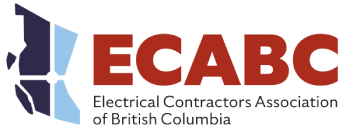
BC’s Construction Contractors are being left on read.
Let’s join the rest of Canada. Prompt payment, now.
Most of Canada has adopted prompt payment legislation for construction projects – BC is an outlier. Prompt payment creates financial security for workers and their families, stability for employers, and a healthy business environment that discourages unfair, harmful practices and predatory payment timelines

- Much of Canada and North America has prompt payment legislation for the construction industry which ensures contractors are paid on reliable timelines.
- Ontario’s prompt payment rules, included within their Construction Act, is the template for prompt payment legislation across most of the country. It took effect October 1, 2019 – nearly five years ago!
- British Columbia has yet to pass prompt payment legislation, making it an outlier in Canada.
- ECABC is one of the many construction industry and labour organizations advocating for BC to adopt prompt payment legislation now.
- Most contractors don’t have in-house legal teams or the money to engage in costly legal fights with big companies to ensure they get paid what they’re owed.
The bottom line is that BC is behind, we need to catch up to the rest of Canada and implement prompt payment to protect workers, enhance fairness for employers and provide the same protections available to contractors across the country.
ECABC is calling on the provincial government to commit to prompt payment legislation this year.

Prompt Payment 101 FAQs
What is prompt payment legislation?
Prompt payment legislation establishes fair, reliable timelines for payments on construction projects. It has been widely adopted across Canada, and North America.
Why is prompt payment legislation needed?
Prompt payment is the #1 concern of BC’s electrical contractors. Contractors – especially trade contractors – are often forced to wait 60-90 days to be paid for work they have done. In the meantime, they need to make payroll every two weeks and pay suppliers monthly. This system puts an unreasonable share of risk and financing costs on contractors, many of whom are small businesses.
Similar to providing a minimum wage to protect workers, prompt payment legislation ensures standard practices for construction projects.
What would be the payment timelines under prompt payment legislation?
Legislation across Canada typically allows for a maximum of 28 days from receipt of the first invoice to an owner/general contractor, and seven additional days for each contractual relationship throughout the project chain (i.e. seven days from the GC to the electrical and mechanical contractors, and seven additional days from an electrical contractor to the firestopping sub-contractor, etc.).
Doesn’t the Lien Act already give contractors tools to ensure they get paid?
The Builders Lien Act, which is also in need of modernization, can help contractors make sure they get paid – but it is a lengthy and often costly process that does not help contractors get paid quickly.
I’ve heard that prompt payment legislation will slow down housing construction. Is that true?
No. There is no evidence from any jurisdiction with prompt payment legislation that eliminating predatory payment timelines will slow down work on construction sites.
This legislation provides greater certainty for all parties on a construction project.
Isn’t prompt payment legislation just more bureaucratic red tape?
Paying your bills in a fair and reasonable timeline isn’t ‘red tape.’
Providing fair and reasonable timelines for contractors and skilled tradespeople to get paid is about establishing a minimum standard, similar to minimum wage.
Is prompt payment legislation new and/or unproven?
This legislation is standard in most jurisdictions across North America; British Columbia is an outlier for its lack of similar legislation.
Having to pay invoices within 28 days is too much of an administrative burden for small builders.
Small businesses in BC are able to handle making payroll every two weeks. Construction companies across Canada have transitioned to the requirements of prompt payment legislation.
The legislation is needed because there are some bad actors who impose unreasonable payment timelines and/or refuse to meet their contracted obligations, knowing that few trade contractors or subcontractors have the resources to pursue legal action.
What happens without prompt payment legislation?
Contractors are forced to build more risk and carrying costs into their bids, which can increase the overall cost of construction. It also makes it more challenging for smaller and medium-sized contractors to carry the costs needed to compete in the market, which limits their ability to hire apprentices/workers and grow their business. In some cases, unnecessarily delayed payments can pile up and force business closures, directly harming entrepreneurs and skilled tradespeople.
Is prompt payment working in other jurisdictions in Canada?
Yes. Ontario’s legislation, which has been in force for nearly five years, is helping contractors get paid faster and providing more payment timeline certainty.
There is absolutely no evidence to suggest Ontario’s construction projects are happening slower due to prompt payment legislation.



